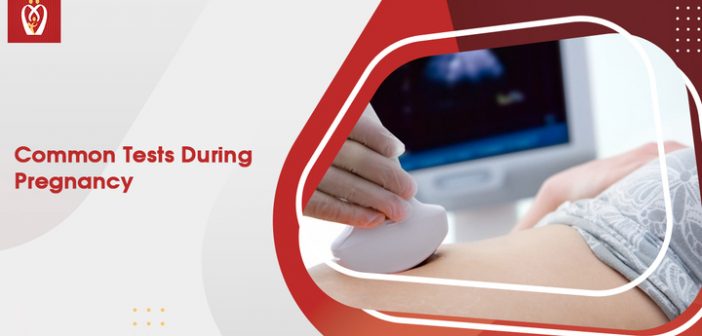Your GP may recommend a range of screenings, tests, and imaging procedures throughout your pregnancy. Your baby’s health may be assessed by these tests, which can assist you in providing the best possible care and growth for your kid while she/he is still a fetus.
Prenatal screenings in the first trimester
First-trimester screening includes fetal ultrasound and maternal blood tests. Using this test, you may determine whether or not the fetus is in danger of developing specific birth abnormalities. Diagnostic tests may be performed alone or in combination with screening testing.
- Fetal nuchal translucency may be detected using ultrasound (NT). Ultrasounds are used to evaluate the back of the fetus’ neck to see whether there is an increase in fluid or thickness.
- Fetal nasal bone measurement by ultrasound. Some newborns with chromosomal abnormalities, such as Down syndrome, may not have a visible nasal bone. Therefore, during the 11th or 13th week of pregnancy, an ultrasound is used to do this screening.
- Serum (blood) testing for pregnant women. Pregnant women’s blood contains two chemicals that are measured by these blood tests:
- A plasma protein that is related to pregnancy A. Early in pregnancy, the placenta secretes a protein called amyloid-beta. Chromosome abnormalities are more likely when levels are off.
- Human chorionic gonadotropin (HCG). The placenta generates early pregnancy hormones. Therefore, chromosome abnormalities are more likely to occur if the levels are abnormal.
- If the findings of these tests are abnormal, your GP may recommend genetic counseling. Possibly further testing is required. Amniocentesis and cell-free fetal DNA are two examples of ultrasounds that may be used.
Screening tests during the second trimester of pregnancy
Prenatal screening in the second trimester may involve a number of blood tests. Multiple markers are the term for them. They provide data on a woman’s likelihood of giving birth to a child with a certain kind of genetic disorder or a congenital disability. Prenatal screening may be done by obtaining a blood sample at 15 to 20 weeks of pregnancy. From the 16th to the 18th is great.
Screening for alpha-fetoprotein (AFP)
Blood samples taken during pregnancy are analyzed for alpha-fetoprotein levels. The liver of the fetus regularly produces AFP. It is found in the amniotic fluid surrounding the developing baby and travels via the placenta into the mother’s blood. It is also known as the MSAFP blood test (maternal serum AFP).
AFP levels that are out of the ordinary might indicate:
- Spina bifida and other open neural tube defects (ONTD)
- Down syndrome
- Other chromosomal abnormalities
- The fetus may have abdominal wall issues
- The due date was incorrectly set. As the fetus grows, so does the AFP level.
You may require further testing if your AFP and other indicators are abnormal. For example, the dates of pregnancy may typically be verified with an ultrasound. The fetal spine and other body sections are also examined for potential disorders. To make an accurate diagnosis, amniocentesis may be required.
A multiple marker test is merely a screening test to determine whether pregnant women should be given further testing. The testing returns false-positive findings. When the fetus is genuinely healthy, this indicates they reveal an issue with the fetus. It’s also possible that the findings are a false negative. This implies that they show that the fetus is healthy even while the fetus is truly sick.
It is more likely to be found if screenings are performed in the first and second trimesters if a problem is found. According to some estimates, first and second-trimester screening may detect 19 out of every 20 occurrences of Down syndrome.
Ultrasound
High-frequency sound waves may be used to create images of the interior organs in an ultrasound scan. In addition, pregnant women may get a screening ultrasound to ensure that their fetus is growing normally and to determine their expected due date. There are several reasons to do ultrasounds during a woman’s pregnancy at different intervals.
There are a variety of reasons to do ultrasounds at different stages of pregnancy, including:
First Trimester
- To determine when the baby is due (this is the most accurate way of determining the due date)
- Identification of placental structures and counting of fetuses
- To determine whether a miscarriage or ectopic pregnancy has occurred.
Midtrimester | Pregnancy common test
- To ensure that the due date has been met (a due date set in the first trimester is rarely changed)
- Placental structures are examined to identify the number of fetuses.
- It can help with prenatal testing like amniocentesis.
- To look for any anomalies in the fetal anatomy.
Third trimester
- To monitor the development of the fetus.
- To check the amount of amniotic fluid
- For the biophysical profile
Screening for genetic mutations
Several genetic conditions may be identified at birth. If you or your spouse have a family history of genetic problems, or if you have had a fetus or newborn with a genetic condition, your healthcare practitioner or midwife may recommend genetic testing during the pregnancy.
These are only a handful of the many prenatal tests. Talk to your GP or midwife for further details and more information on these.







